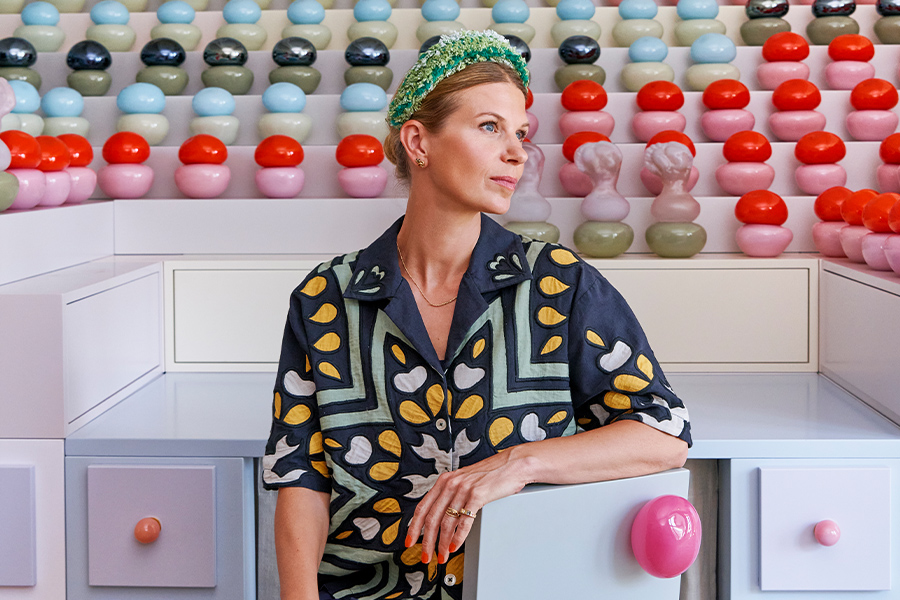While he may not have been “aware of design as a profession until high school,” Martin Ablaza’s childhood in Manila and Los Angeles wasn’t without creative energy. Turning silk pocket squares into cocktail outfits for his sister’s dolls and sponge-painting his bathroom in sunset tones, “I started to display a tendency to modify my surroundings to fit my vision” at a young age, he says. Ablaza later entered a local fashion design competition at 17, and then attended Parsons School of Design in New York with the intention of studying fashion, but “found that product design would give me access to a wider range of materials, scales, and platforms,” he says.
Yet, graduating right before the recession in 2005 delivered an immediate reality check, as Ablaza watched “my peers drop one by one shortly after.” He adds: “So many talented people never stood a chance.” After a summer working on bespoke summer homes in the Hamptons for Pierre Bouguennec’s Boum Design studio, Ablaza credits Gucci—where he designed flagship stores in New York and Rome—for “setting the bar for aesthetic and conceptual excellence,” he says. The job not only “fed my love for fashion and immersive experiences,” he explains, but built a portfolio that paved the way for his next role at Starwood Hotels in 2009, where he rose to associate design director and worked closely with the W brand, cementing his shift from fashion to hospitality. “Travel is a transformative experience,” he says. “Hospitality, when done right, is the stage for that experience.” In fact, as a child, he recalls going to Sunday brunch at the Peninsula Manila, a ritual with his grandmother. “Manila in the 1990s was framed by rolling blackouts, political instability, and an economic downturn, so these Sundays took you away from that into a world that was grand and glamorous.”
After the recent Marriott-Starwood merger, Ablaza took on the role of global design director, where he now oversees St. Regis, JW Marriott, Ritz-Carlton, Ritz-Carlton Reserve, and the Luxury Collection. Of his many projects, Ablaza is looking forward to the W Aspen (a collaboration with Nemaworkshop and Rowland + Broughton), where he introduced bunk rooms—a first for the brand. “It rethinks the traditional norms of luxury,” he points out, “which should bring an element of youthful fun and vitality to the current social dynamics of the luxury resort town.” Beyond “caffeine and challenging preconceived notions,” he credits his success to “knowing your worth and never having to compromise on it.”


